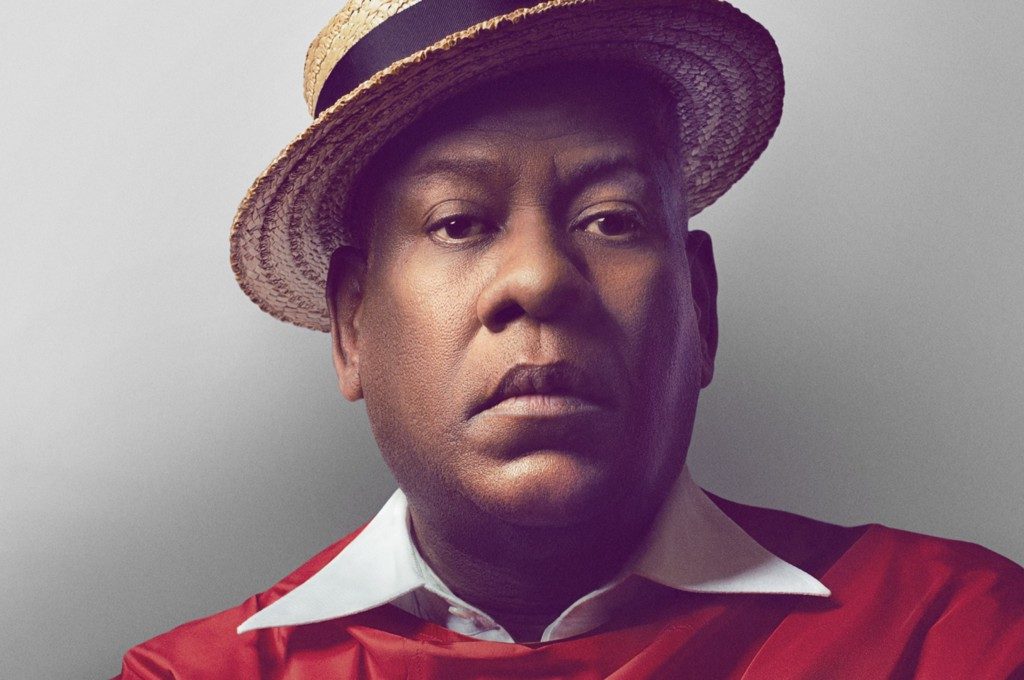Kate Novack is an Emmy-nominated producer and director of documentary films. She was a producer and writer on “Page One: Inside the New York Times,” which was nominated for two News & Documentary Emmy Awards, and a Critics Choice Award, and a producer on the HBO feature film “A Table in Heaven.”
“The Gospel According to André” premiered at the 2018 Tribeca Film Festival on April 25.
W&H: Describe the film for us in your own words.
KN: “The Gospel According to André” is the story of fashion editor André Leon Talley’s journey from the segregated American South to the front row of high fashion — or what he likes to call the “chiffon trenches.”
W&H: What drew you to this story?
KN: I’ve watched André in more than a dozen fashion documentaries — usually in these amazing, over-the-top performances. But somehow he remained a larger than life enigma. He’s been described in various news articles as “Vogue’s resident peacock,” or a “towering inferno.” Why had there never been a movie about him? I thought his story deserved to be told on film.
W&H: What do you want people to think about when they are leaving the theater?
KN: I want them to have a better understanding of a very complex man, who has perhaps been more misunderstood than many people, and the role he has played in American cultural history.
I also hope people will laugh as they walk out of the theater. There are some very funny clips of Andre that play at the end of the film.
W&H: What was the biggest challenge in making the film?
KN: The biggest challenge was establishing trust over time with someone so experienced with crafting images — particularly his own public persona.
W&H: How did you get your film funded? Share some insights into how you got the film made.
KN: Abstract Productions, my producer Andrew Rossi’s production company, provided seed funding before we were able to raise funds from private investors. I was lucky in that the people who supported the film really believed in the importance of the story and in me as a storyteller.
W&H: What does it mean for you to have your film play at Tribeca Film Festival?
KN: I’ve lived in New York City for a long time, and I remember shooting a scene in Tribeca for my very first film, when the World Trade Center towers still loomed in the distance.
When the Tribeca Film Festival started, after 9/11, it meant so much for the city, and for downtown. So to have my directorial debut play there is particularly poignant and meaningful.
W&H: What’s the best and worst advice you’ve received?
KN: Best advice: “Don’t take no for an answer.” Don’t accept the conventional wisdom that certain things are off limits.
Worst advice: “Never talk about your children in a professional setting.” Keeping children and childcare responsibilities invisible ultimately disadvantages women the most.
W&H: What advice do you have for other female directors?
KN: If you feel a story matters, stick with it. I think the idea of which stories are worthy or viable is still very guided by a male idea of story and the classical hero’s journey, while stories about women are often said to lack stakes. Don’t believe the B.S.
Find at least one or two people outside of your everyday work sphere who support your work. For me, it’s a small group of women I work with as screenwriting partners.
Finally, you can make a great film without a huge budget.
W&H: Name your favorite woman-directed film and why.
KN: That’s hard, but I’d say Agnès Varda’s documentary “The Gleaners and I.” I love how she uses the act of gleaning — collecting discarded food and objects — to look at all strata of consumerist society. She combines narrative and documentary storytelling in such an exquisite way — the texture of the filmmaking fits her subject perfectly.
However, I think what I love most is her presence in the film. She is an artist-gleaner who collects images, ideas, and her observations of emotional responses to make movies and live her life. It’s very poetic.
W&H: Hollywood and the global film industry are in the midst of undergoing a major transformation. Many women — and some men — in the industry are speaking publicly about their experiences being assaulted and harassed. What are your thoughts on the #TimesUp movement and the push for equality in the film business?
KN: A couple of years ago, my friend and entertainment lawyer Victoria Cook wrote a Facebook post about the “mis-perception that the (feature) documentary category is more inclusive, less sexist, and less racist than the other categories.” The post went viral. Looking at what has transpired since then, the re-examination in many industries of what behavior is acceptable and humane gives me a lot of hope. But it’s really not just a film business issue.







